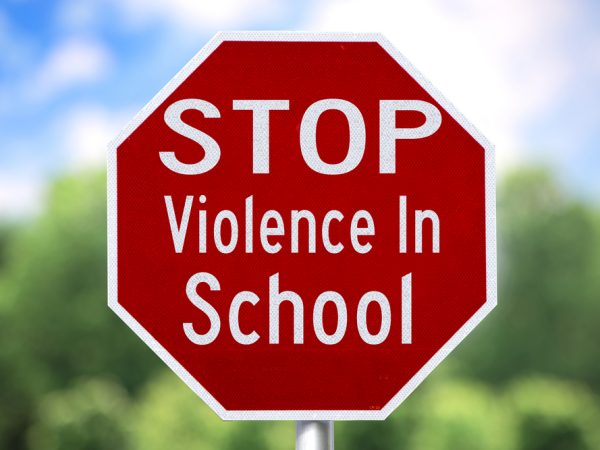
Background:
A girl was attached at an Indianapolis Public School: Northwest Community High School by a male student claiming he was bullied.
A cell phone video captured a violent fight involving a male student viciously beating a girl while a teacher watches. The beating continues for under a minute, with the male student pulling the girl’s hair, throwing her to the floor and repeatedly hitting her in the face. Students (not adults) stop in to stop the attack.
The brutal fight, recorded on video, was in the school hallway Tuesday. Students say it was just one of seven fights at school that day.
That video shows a staff member, there when the fight started, scream at the students to stop. The teacher never intervenes physically because, according to Indiana Public School (“IPS”) policy, staffers are not allowed to put their hands on students.
Social Media and Parent Outrage after press reported the attack
After the press reported on the attack and lack of teacher intervention, there was a public outcry in the press, social media and the community about school policy.
IPS’s Policy Preventing Teachers from Intervening is unlawful, against public policy and can get the school sued
- Schools cannot legally discipline or fire educators or any employee for acting in a manner consistent with state self defense and defense of others law. If a teacher defies school policy and physically intervenes in a manner consistent with state self defense law, and the school tries to discipline or fire the teacher, the school can be sued as this is a violation of the teacher’s right to defend self, others and property. The disciplinary action is a tort and violation of the employee’s civil rights.
- If a teacher follows school policy and a student is hurt, the school can be liable for failure to protect.
- Schools have a duty to protect and maintain a safe educational environment. Schools have a “special relationship” with students and act “in loco parentis for students in matters relating to school safety, education and discipline.” Ingram v. Wright, 430 U.S. 651 (1977). Thus the duty to protect and provide education rests with the school. A policy that interferes with this obligation and fails to protect students breaches this duty.
- Schools have a duty to train staff in foreseeable events. Schools fights are foreseeable. Failure to intervene in a manner that is effective to prevent or mitigate bodily injury is a tort and a breach of the school’s duty. Either the school needs to train its teachers or it needs to have on-site personnel that is trained to intervene. If it was not for the students in this instance, if the girl was hurt and the fight not broken up, the school would have been sued. Failure of the adult to intervene was an abdication of adult responsibility.
- Indiana law regarding restraint and seclusion in schools states that schools are required to train staff in the “safe use of physical restraint… The law also provides that “Nothing in this chapter may be construed to prevent a school employee from stopping a physical altercation, acting to prevent physical harm to a student or another individual, or acting to address an emergency… whether or not the school employee has received training under this chapter.”
- IPS schools and staff are not immune from suit if they follow a hands off policy. Under Indiana law schools and school personnel have qualified immunity with respect to the adoption of an intervention/restraint plan in accordance with this law. IPS’ school policy preventing teachers from physically intervening to prevent physical harm to a student or others is in direct conflict with Indiana law, and is outside the qualified immunity provided under this statute. This means that IPS schools and employees are not immune if they follow IPS’s policy rather than State law.
See IC 35-41-3-2: Indiana defense of self, others and property laws; IC 20-33-8-8 through 20-33-8-11: Indiana Tort Law and In loco parentis
HWC’s Suggestion:
HWC cannot offer legal advice. We would suggest that when schools encounter conflicting laws or policies that they solicit the advice of Counsel licensed to practice in their State. As an example, in light of Indiana’s self-defense and restraint laws, it does not appear that schools can tell teachers not to intervene when a person’s physical safety is at risk. Doing so would be a violation of the teacher’s natural and civil right to defense of self and others as codified in Indiana’s law, Indiana’s State and Federal Constitution and the Supreme Court. Defense of self and others are non-waivable rights. Further, Indiana’s restraint law specifically gives teachers the express ability to physically intervene when a person is in imminent danger of bodily injury.
School policies cannot contradict State law or Constitutional rights.